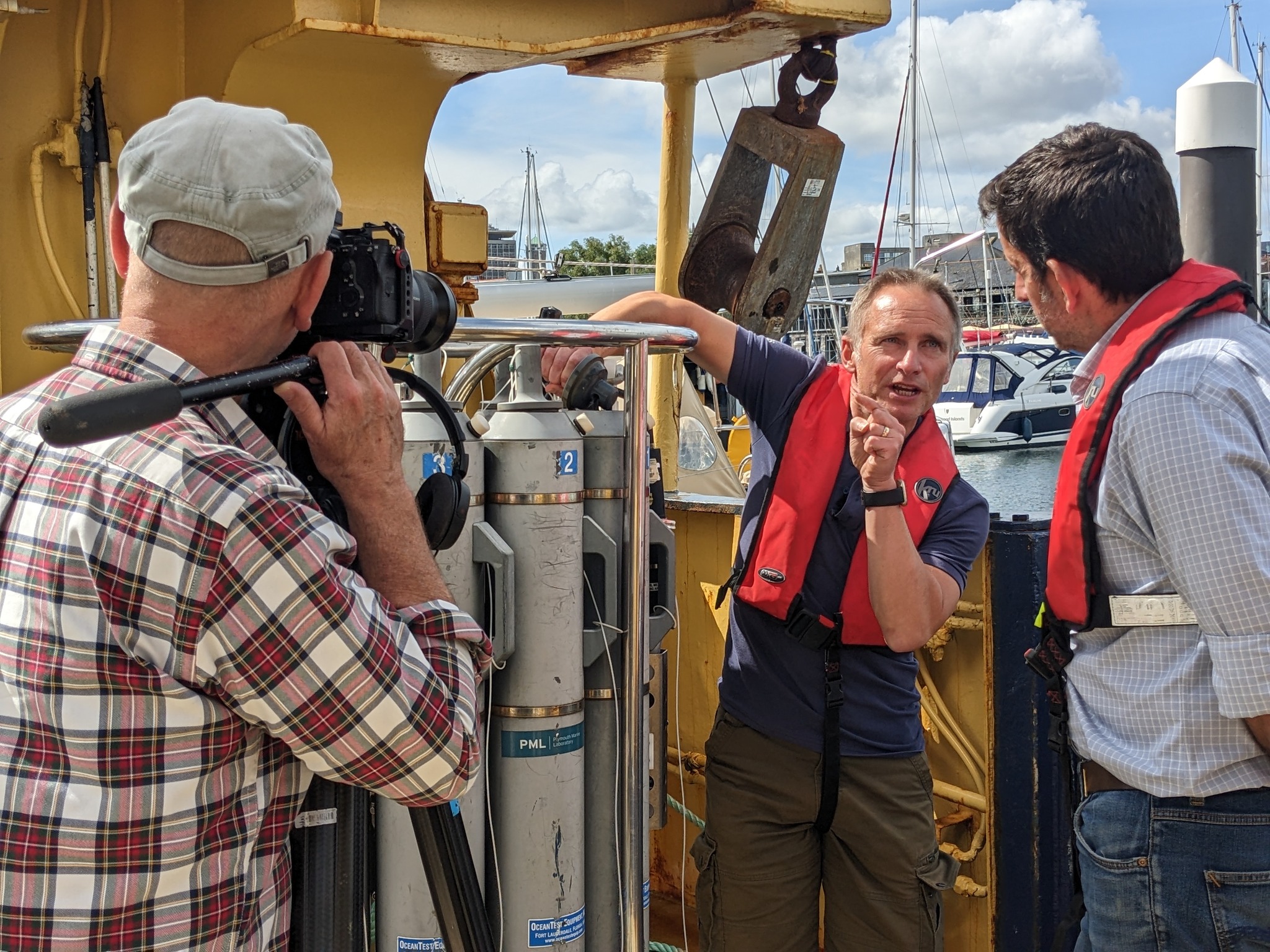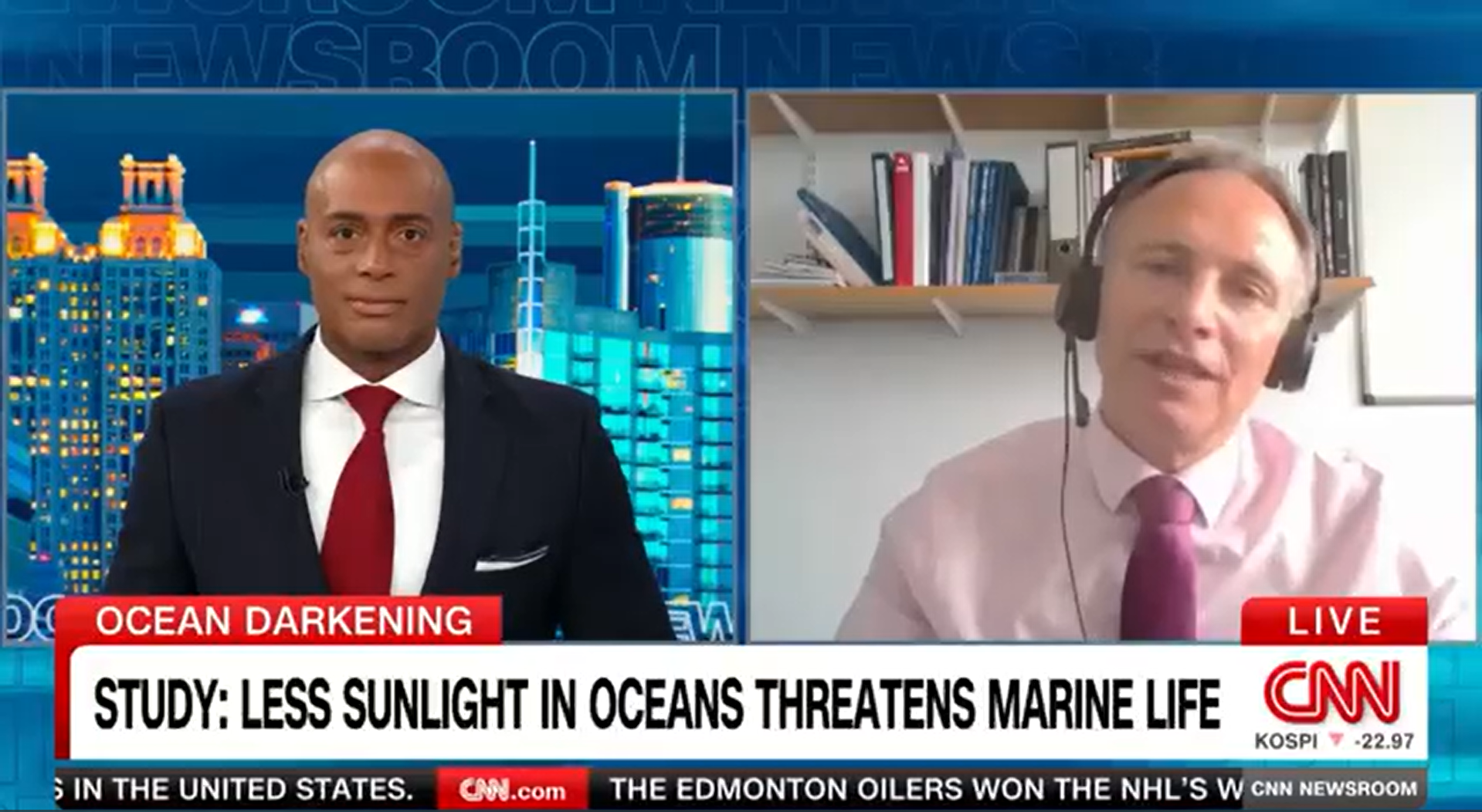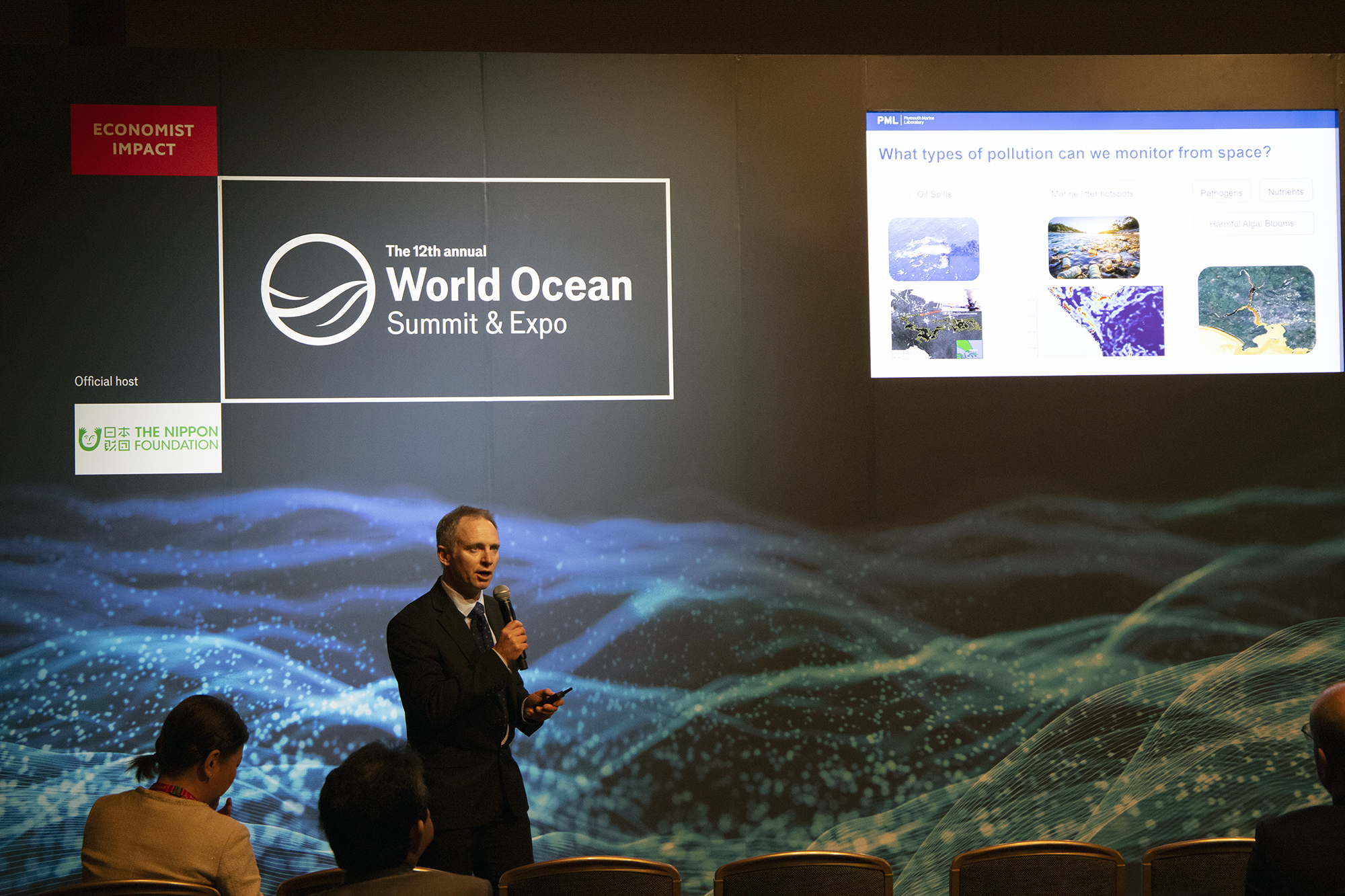Story
PML Appoints Professor Tim Smyth as New Director of Science
09 September 2025
Leading marine scientist to spearhead PML’s world-class research programmes and drive science for ocean action

Plymouth Marine Laboratory (PML) is pleased to announce the appointment of Professor Tim Smyth as its new Director of Science, effective immediately. Professor Smyth brings over 25 years of expertise in marine science, most recently as PML’s Head of Science for Marine Processes and Observations.
Professor Smyth has successfully led the NERC-funded Western Channel Observatory (WCO) for 19 years. His appointment recognises his track record in hydrological optics measurements and modelling, as well as his pioneering work in satellite remote sensing applications at global scale.

Image: Professor Smyth onboard PML’s research vessel Plymouth Quest, speaking to BBC Breakfast Climate Editor Justin Rowlatt about rising ocean temperatures and “almost continuous marine heatwave conditions” seen in the western English Channel, following reports of record-breaking ocean temperatures in the North Atlantic.
With over 130 published articles in ISI journals, one of Professor Smyth’s key areas of research in recent years has been on Artificial Light at Night (ALAN) in marine environments. This has included mapping the global extent of underwater light pollution and investigating the impact of ALAN around global megacities compared with natural lunar cycles. His work has significantly advanced understanding of light dynamics in marine ecosystems.

Image: Earlier this year, Professor Smyth and Dr Davies of the University of Plymouth brought the issue of light pollution to UK Parliament, speaking to dozens of MPs, peers and policy advisers about the impacts of light pollution on marine ecosystems. The pair have led studies demonstrating the many and varied impacts of artificial light at night (ALAN), and their work led to the establishment of the Global Ocean Artificial Light at Night Network (GOALANN), which in January 2025 was endorsed by the United Nations as one of its new Ocean Decade Actions.
Since joining PML in 1997 as a data analyst and algorithm developer, Professor Smyth has established himself as a leading authority in theoretical and experimental atmospheric and in-water optics. He has been instrumental in supporting the development of innovative technologies for automated marine measurements, including the WCO buoys and systems for monitoring ship emissions and atmospheric aerosols.
“It is the honour of my career to be asked to serve as the Director of Science at PML,” said Professor Smyth. “I am looking forward to representing the world class science that we do at the local, national and international level and making sure that we all continue to deliver excellent science that drives meaningful ocean action.”

Image: Earlier this year, Professor Smyth made global headlines over his co-led paper ‘Darkening of the global Ocean’, which revealed a 21% reduction in sunlight zones vital for life in the sea. It was the first global-scale assessment of long-term changes in the ocean’s photic zone; the sunlit upper layer of the Ocean that supports over 90% of marine life and underpins key planetary processes such as oxygen production and carbon cycling.

Image: Professor Smyth on the international stage, pictured speaking at the Economist Impact’s 12th Annual World Ocean Summit in Japan in March this year. Prof Smyth led the groundbreaking global atlas of underwater ALAN revealed that at just one meter depth, approximately 1.9 million square kilometres of coastal ocean (about 3.1% of global Exclusive Economic Zones) are exposed to biologically significant levels of artificial light.
Professor Icarus Allen, Chief Executive of Plymouth Marine Laboratory, commented:
“Tim’s appointment as Director of Science marks a natural progression for someone who has been instrumental in PML’s scientific leadership for over two decades. His vision and leadership aligns perfectly with PML’s mission to advance marine science for the benefit of the Ocean and society. I’m confident that under his leadership, PML science will continue to tackle the most pressing challenges facing the Ocean in new and exciting ways driving meaningful change and delivering lasting impact.”
Professor Smyth’s appointment follows the recent announcement that former Director of Science, Professor Steve Widdicombe, will be taking up a new role at the newly-formed Sharjah Marine Science Research Centre at the University of Khorfakkan in Sharjah.
Related information
Related news items: PML Announces Departure of Director of Science to Lead New Marine Science Centre in the UAE – Plymouth Marine Laboratory
